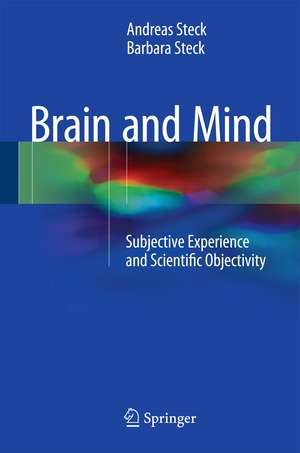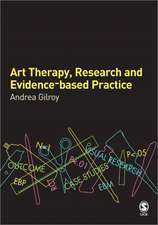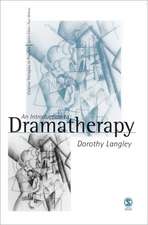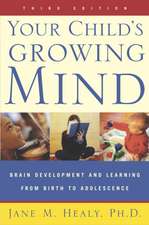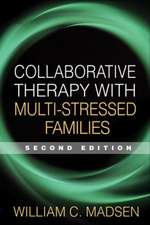Brain and Mind: Subjective Experience and Scientific Objectivity
Autor Andreas Steck, Barbara Stecken Limba Engleză Hardback – 30 noi 2015
| Toate formatele și edițiile | Preț | Express |
|---|---|---|
| Paperback (1) | 627.67 lei 6-8 săpt. | |
| Springer International Publishing – 23 aug 2016 | 627.67 lei 6-8 săpt. | |
| Hardback (1) | 791.67 lei 39-44 zile | |
| Springer International Publishing – 30 noi 2015 | 791.67 lei 39-44 zile |
Preț: 791.67 lei
Preț vechi: 833.34 lei
-5%
Puncte Express: 1188
Preț estimativ în valută:
139.90€ • 162.32$ • 122.06£
139.90€ • 162.32$ • 122.06£
Carte tipărită la comandă
Livrare economică 13-18 aprilie
Specificații
ISBN-13: 9783319212869
ISBN-10: 3319212869
Pagini: 278
Ilustrații: XIX, 278 p.
Dimensiuni: 155 x 235 x 17 mm
Greutate: 0.71 kg
Ediția:1st ed. 2016
Editura: Springer International Publishing
Colecția Springer
Locul publicării:Cham, Switzerland
ISBN-10: 3319212869
Pagini: 278
Ilustrații: XIX, 278 p.
Dimensiuni: 155 x 235 x 17 mm
Greutate: 0.71 kg
Ediția:1st ed. 2016
Editura: Springer International Publishing
Colecția Springer
Locul publicării:Cham, Switzerland
Public țintă
Professional/practitionerCuprins
CHAPTER 1.- I CONSCIOUSNESS.- The Problem of Consciousness.- Neurobiology of Consciousness Models of Consciousness.- The Global Workspace Model.- The Dynamic Core Model.- Epilogue.- Conscious Perception.- The Embodied Mind.- Understanding the Human Brain by Studying Large Scale Networks.- Challenges.- II CLINICAL VIEW OF CONSCIOUSNESS.- Introduction.- The Pathophysiology of Reduced Consciousness.- The Construction of the Conscious Brain.- The Hierarchy of Consciousness.- When Consciousness Fades.- Anesthesia.- Minimally Conscious State.- Altered Consciousness in Neurological Disorders.- Disconnection and Neglect.- Epilepsy.- Narcolepsy.- Alzheimer’s disease.- CHAPTER 2.- I MEMORY.- Introduction.- Different Types of Memory.- The Dynamics of Memory Traces.- The Molecular Biology of Memory.- Neurogenesis: Links to Memory and Behavior.- II CLINICAL VIEW OF MEMORY.- The Memory Machinery.- Infantile Amnesia.- Mind, Time and Memory.- Mind and Time in Childhood and Adolescence.- Re-transcription of Memory.- Emotions and Memory.- Amnesias and Memory Disorders.- Transient Global Amnesia.- Chronic or Progressive Amnestic Disorders.- CHAPTER 3.- I EMOTIONS.- Evolving Concept of the Limbic System.- Emotion and Behavior.- Emotional Systems.- The Role of the Frontal Lobe.- Social Emotion and Social Norm.- II THE DEVELOPMENT OF SELF.- Brain Development and the Self.- Psychological and Self – Development.- True and False Self.- Early Parent - Child Relationship.- Parenthood.- Early Relationship Disorders.- CHAPTER 4.- I LANGUAGE.- The Evolutionary Origin of Language.- The Classical Language Regions.- The Language Network.- The Neural Basis of Speech Perception and Language.- Language Learning Disorders.- II COMMUNICATION.- Introduction.- Gestural Communication.- Social Interactions or Proto-Conversations.- Speech and Language.- III MUSIC.- Introduction.- Music and the Brain.- Music in Early Human Development.- The Emotional Power of Music.- CHAPTER 5.- STRESS AND TRAUMA.- Stress and the Brain.- Neurobiological Responses to Stress.- Stress and Mental Disorders.- New Avenues for Treatment.- Psychic Trauma.- Concepts.- Psychic Trauma in Children.- Psychobiological Aspects.- Psychodynamic Aspects.- Symptoms and Phases of Psychic Trauma.- Familial Aspects.- Post-Traumatic Consequences.- Post-Traumatic Stress Disorders.- Risk for Psychic Traumatization.- Children of Mentally or Somatically Ill Parents.- Psychotherapeutic Interventions.- Adoption.- CHAPTER 6.- I PAIN AND MIND-BODY.- Introduction.- Pain Mechanisms and Functions.- The Affective Pain System.- Notes on Chronic Pain.- II SOMATIZATION – PSYCHOSOMATICS.- The Mind - Body Dilemma.- Psychosomatics.- Speaking Body, Speechless Mind.- Somatization in Children and Adolescents.- CHAPTER 7.- RESILIENCE.- A Dynamic Concept.- Gene - Environment – Interactions.- Adoption.- Development.- Temperament.- Stress.- Depression.- Attachment.- Resilience promotion.- CHAPTER 8.- GRIEF.- Introduction.- Prolonged Grief Disorder or Complicated Grief.- Grief in Children and Adolescents.- Pathological Grief and Secret.- Transgenerational Transmission of Traumatic Events.- Neurobiology of Grief and Depression.- New Treatments for Depression.- CHAPTER 9.- DREAMS AND THE DREAMING BRAIN.- History.- The 24-Hour Brain.- Neurophysiology of Dreams.- Transition States of Sleep.- Functions of Dreams.- Lucid Dreaming.- Daydreaming.- Nightmares.- Music in Dreams.- Dream Work in Psychotherapy.- CHAPTER 10.- NOTES TO PSYCHOTHERAPY.- Introduction.- Dialogue between Psychoanalysis and Neuroscience.- Transference and Intersubjective Relationship.- Interpretation / Intervention.- Psychoanalytical Therapy for Patients with Adverse Childhood Experiences.- Psychotherapy in Children and Adolescents.- Indication for Psychoanalytical Therapy.- Psychoanalytical Psychotherapy.- Play.- Psychoanalytical Therapeutic Group Psychodrama.- Psychopharmacological Treatment.- Narratives.- Introduction.- Narratives in Psychotherapy.
Recenzii
“The purpose is to attempt to bridge the gap between objectivity in regards to neuroscience and the subjectivity of the self via clinical phenomena. … The targeted audience includes psychiatrists, psychologists, and psychotherapists. … This is a scholarly book, and each chapter ends with citations of the relevant scientific literature.” (Michael Joel Schrift, Doody’s Book Reviews, April, 2016)
Notă biografică
Andreas Steck
Professor of Neurology
University of Basel
Switzerland
Barbara Steck
Lecturer of Child and Adolescent Psychiatry and Psychotherapy
University of Basel
Switzerland
Professor of Neurology
University of Basel
Switzerland
Barbara Steck
Lecturer of Child and Adolescent Psychiatry and Psychotherapy
University of Basel
Switzerland
Textul de pe ultima copertă
Recent advances in the understanding of brain functions are reviewed in this text, along with how neurobiological research and brain imaging contributes to identifying and treating neurologic and psychiatric disorders. Chapters focus on consciousness, memory, emotions, language, communication, trauma, pain and resilience, while exploring how stressful events impact mental health and interrupt the continuity of one's sense of self. Clinical vignettes of patients with neurological and mental affections reveal coping and grieving processes in dreams and narratives. This presentation of clinical experience with neuro-scientific evidence provides neurologists, psychiatrists, psychotherapists and psychologists with a coherent picture of the brain-mind relationship.
Caracteristici
Reviews recent advances in the fields of consciousness, memory, emotions and language Combines clinical experiences with scientific facts allowing better understanding of the brain-mind relationship Features clinical vignettes demonstrating how traumatic experiences interrupts the continuity of one's sense of self
